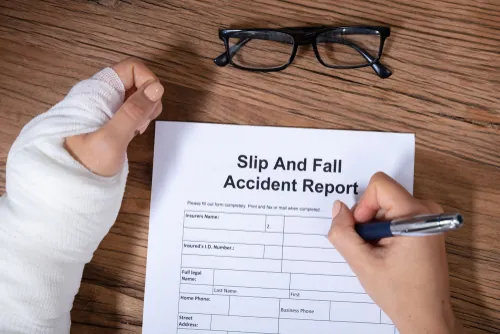How to Pursue a Slip and Fall Claim Against a City or County in Florida

Slip and falls accidents are one of the most common types of accidents. While a slip and fall accident can occur from user negligence, it can also occur from an unmaintained or faulty property. Florida law allows injured parties to seek compensation from the responsible party if they’re injured while visiting another person’s property.
Filing a Slip and Fall Claim Against the City or County
This process can get tricky when the claim is against the city or county entity that owns the property. A city or county property is any land or building owned by the city or county. This is different from personal property. The laws and processes of filing a personal injury claim are different when filing against a city or county rather than a personal party.
If you’re injured in a slip and fall accident in cities or counties like Coconut Creek, Miramar, Fort Lauderdale, or Cooper City, you’ll need a personal injury lawyer familiar with this type of case.
What is Premises Liability Law?
Premises liability law requires property owners to maintain a property or premise so that it’s free of safety risks or hazards for guests. If the responsible party fails to do this, they may be held liable if someone is injured on the property.
The state requires the victim to provide the burden of proof. This means that it’s on you to collect and show evidence that it was the negligence of the city or county that led to your injury. This may include things like photographs, witness statements, maintenance reports, or expert witnesses. The property owner, in turn, will argue that they did everything reasonable when maintaining the property.
What is Sovereign Immunity?
Sovereign immunity is a clause that claims that a government entity can’t be sued without its consent. More specifically, government entities get special consideration when it comes to state law because any lawsuits are paid by resident taxes. This means that even if the court rules that there was negligence involved, the compensation amount has a limit. Some cases may be banned from this immunity defense. The details of your case determine whether these unique laws apply to you or not.
Shorter Filing Time Limits
It’s also important to note that personal injury cases against a government entity have a shorter statute of limitation. A statute of limitations refers to the period of time that you have to file a case with the court. In most personal injury cases in Florida, you have four years from the date of the accident to file a claim. However, when a government entity is involved, you have just three years from the date of the injury.
This means if you were injured due to the negligence of a government worker or building, you’ll want to consider your options soon. Once you reach this time limit, the court will likely throw out your case. It can also take time to choose a lawyer and ensure they have time to collect evidence and fulfill the burden of proof.
Contact a Coconut Creek Personal Injury Lawyer to Discuss Your Slip and Fall Accident Case in Florida
Did you or a loved one sustain serious injuries due to a slip and fall accident in Florida? Don’t let the medical bills pile up while you wait for the negligent party or their insurance company to do the right thing. Right now, you need an aggressive personal injury attorney on your side, fighting to get you the compensation you need, want, and deserve. The skilled attorneys at Lawlor, White and Murphey, LLC represent clients injured because of a slip and fall accident in Coconut Creek, Pembroke Pines, Pompano Beach, Fort Lauderdale, and throughout Florida. Call (754) 226-1474 or fill out our online contact form to schedule a free consultation about your case. We have an office conveniently located at 2211 Davie Blvd, Fort Lauderdale, FL 33312, as well as offices in Pembroke Pines, Weston, Coconut Creek, Plantation, and Pompano Beach.
The articles on this blog are for informative purposes only and are no substitute for legal advice or an attorney-client relationship. If you are seeking legal advice, please contact our law firm directly.